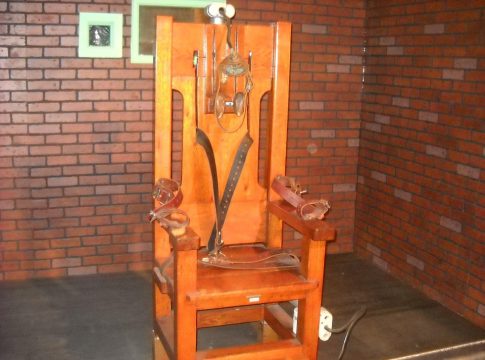The American criminal justice system is often portrayed in films and TV shows as a pillar of fairness and justice. But behind that polished facade lies an intricate web of complexities and shocking truths that affect millions of lives each year. Understanding these realities is crucial, whether you’re a concerned citizen, a policy advocate, or just someone interested in social justice. The implications reach far and wide, impacting families, communities, and even the economy. So, buckle up; we’re about to delve into 10 eye-opening truths about the American criminal justice system that might just change your perspective.
1. The U.S. Has the Highest Incarceration Rate in the World
You might think of the United States as a beacon of freedom, but it leads the globe in incarceration rates. With about 2.3 million inmates, the U.S. locks up around 25% of the world’s total prison population, despite having only 5% of the global population. This massive figure isn’t just a statistic; it represents a troubling reality of over-policing, particularly in marginalized communities.
2. Racial Disparities Are Stark
When it comes to race, the disparities within the criminal justice system are both shocking and undeniable. African Americans are incarcerated at more than five times the rate of white Americans. This systemic inequality often stems from longstanding prejudice and biased policies, affecting everything from sentencing to parole. Communities of color face heightened surveillance and policing, leading to a cycle of disadvantage.
3. Plea Bargaining Is King
Did you know that about 95% of cases in the U.S. are resolved through plea bargains? This means that many individuals are pressured into admitting guilt, often without fully understanding their rights. The focus on speedy resolutions can compromise the quality of justice, leaving innocent people to bear the weight of a conviction or deflected from exploring stronger defenses simply to avoid a lengthy trial.
4. The Role of Money
Justice isn’t blind; it often runs on money. Those who can afford bail, quality legal representation, and other court costs are far less likely to face severe punishment. Conversely, defendants with limited financial resources often lack access to effective defense, resulting in longer sentences and poorer outcomes. This disparity underlines a stark truth: the ability to pay can significantly influence your chances of receiving fair treatment in the legal system.
5. Mental Health and Substance Abuse Are Overlooked
A staggering percentage of incarcerated individuals struggle with mental health issues or substance abuse. Estimates indicate that about 70% of inmates have a diagnosable mental disorder. Yet, instead of providing adequate treatment options, the criminal justice system often becomes a catch-all for those battling mental health crises. This not only perpetuates cycles of recidivism but also emphasizes the dire need for reform in how we approach mental health and addiction.
6. The War on Drugs Has Failed
The ongoing War on Drugs has led to draconian policies that disproportionately impact low-income communities and people of color. Despite years of aggressive policing, drug use remains widespread. Critics argue that these policies have done more harm than good, pushing individuals into a system that exacerbates rather than solves the problem. There is a growing consensus that treating addiction as a public health issue rather than a criminal one could lead to better outcomes for society.
7. Life Sentences Are Becoming Commonplace
Life sentences without the possibility of parole are increasingly used within the American criminal justice system. This practice raises moral and ethical questions, particularly regarding the potential for rehabilitation. With more people serving life sentences than ever before, we must consider whether our society truly believes in second chances or if we have resigned ourselves to punishment as the only response.
8. The Death Penalty Remains Controversial
Though more states have begun to abolish the death penalty, it remains in effect in many areas. The process is fraught with moral dilemmas and is often criticized for being applied inconsistently. Concerns over wrongful convictions further ignite debates that question the effectiveness of this form of punishment, leaving many advocating for comprehensive reforms or outright abolition.
9. Juvenile Justice Is Not So Just
Youth offenders face a disproportionately punitive system in the U.S. Many juveniles are tried as adults, significantly increasing their chances of incurring harsh sentences. This approach often overlooks the potential for rehabilitation and the impact of a criminal record on a young person’s future. Advocates argue for reforms that would treat juvenile offenders with the understanding that they are still developing and can change.
10. Technology and Surveillance Are Changing the Game
In recent years, technology has become an integral part of law enforcement. While tools like body cameras and data analytics can enhance accountability, they also introduce concerns about privacy and potential misuse. With increasing surveillance, the line between public safety and personal freedom is becoming blurred, challenging our understanding of justice in an increasingly digital world.
Rethinking Justice in America
The American criminal justice system is a complex landscape riddled with surprising truths that demand our attention. From racial disparities to financial inequalities, these challenges call for immediate reforms that prioritize fairness and rehabilitation over punishment. As engaged citizens, we must advocate for a system that serves justice for all, rather than just a select few.
What are your thoughts on the current state of the American criminal justice system? Have you seen how these issues play out in your community? Share your experiences or opinions below!

Covers viral stories, pop culture, and breaking celebrity news.
Bio: Jamie has a sharp eye for what’s buzzing online, tracking social media trends and entertainment headlines around the clock.

